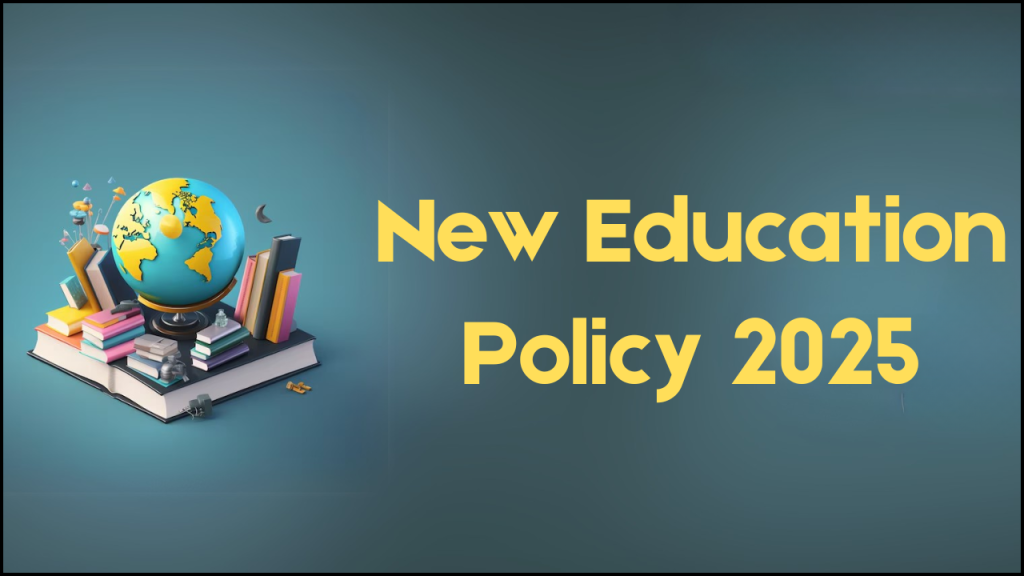
The “New Education Policy 2024” marks a groundbreaking shift in the nation’s educational framework, aligning with the evolving demands of the modern world. This policy underscores holistic learning, digital literacy, and skill development to meet contemporary challenges effectively.
The formulation of this policy for schools and colleges falls under the New Education Policy (NEP), which the Government of India revised in 2024. With transformative reforms, the NEP aspires to position India as a global knowledge leader.
As part of this initiative, the Ministry of Human Resource Development has been renamed the Ministry of Education. The policy seeks to universalize education from preschool to secondary school, targeting a 100% Gross Enrollment Ratio (GER) by 2030, excluding medical and legal studies.
The New Education Policy 2024 (NEP) is built on a solid foundation to cater to diverse learners. It aims to nurture global citizens who remain rooted in cultural values, ensuring an inclusive, forward-looking academic landscape.
Key Highlights of New Education Policy (NEP 2025)
| Feature | Details |
|---|---|
| Policy Name | New Education Policy (NEP) |
| Launched By | Government of India |
| Beneficiaries | Indian Citizens |
| Primary Objective | Universalize education and make India a knowledge superpower |
| Implementation Year | 2024 |
| Availability | Implemented and Active |
Key Features and Guidelines
- Holistic Development: Focuses on cognitive, emotional, and societal growth.
- Early Childhood Care and Education (ECCE): Ensures a strong foundation for learning.
- Curriculum Restructure: Introduces a 5+3+3+4 structure to integrate skill-based learning.
- Vocational Education: Aims to expose 50% of students to vocational training by 2025.
- Regional Language Promotion: Encourages instruction in local languages up to Grade 5.
- Digital Learning: Implements platforms like DIKSHA for tech-driven education.
- Assessment Reform: Shifts focus from rote learning to adaptive, holistic evaluations.
- Teacher Training: Enhances continuous professional development to align with modern teaching practices.
- Inclusivity: Promotes equitable education for all, removing socioeconomic and physical barriers.
Objectives of NEP 2024 The primary goal of the NEP 2024 is to elevate India’s education standards to match global benchmarks. The policy addresses deficiencies in the previous systems, emphasizes conceptual understanding, and reduces rote learning.
Need for the New Education Policy (NEP)
The earlier education system faced challenges like emphasis on memorization, limited vocational training, and disparities across boards. The NEP aims to:
- Promote conceptual learning over rote methods.
- Harmonize standards across education boards.
- Incorporate vocational training into mainstream curricula.
Origins and Development of NEP The NEP 2024 was formulated based on recommendations from an expert panel led by former ISRO chief K. Kasturirangan. The policy incorporates insights from extensive consultations and research, focusing on inclusivity and modern educational demands.
Principles of NEP 2024
- Emphasizes individual potential and foundational learning.
- Promotes flexible, multi-disciplinary education methods.
- Encourages cultural integration and digital literacy.
- Focuses on research, critical thinking, and technological advancements.
- Ensures transparency and accountability in implementation.
Key Features of NEP 2024
- Ministry of Human Resource Management renamed Ministry of Education.
- Universalization of education excluding medical and law fields.
- Flexible 5+3+3+4 structure covering pre-primary to secondary education.
- Vocational internships from Class VI.
- Emphasis on mother tongue or regional language up to Class V.
- No fixed subject streams; students can choose interdisciplinary subjects.
- Coding introduced from Class VI.
- Digital resources and virtual labs to modernize learning.
Impact and Goals by 2025
- 50% vocational training exposure for students.
- Expanded digital learning platforms, including DIKSHA.
- Teacher upskilling programs to cover 80% of educators.
- Establishment of multidisciplinary institutions in 50 districts.
- Targeting 100% Gross Enrollment Ratio (GER) by 2030.
Implementation and Review Mechanism An Implementation and Review Committee will monitor progress, along with a task force focused on credit systems and multidisciplinary frameworks. Delays will trigger accountability measures.
New Education Policy 2024 Structural Reform: 5+3+3+4 Model
- Foundational Stage (5 years): Focus on interactive, activity-based learning and literacy.
- Preparatory Stage (3 years): Emphasis on exploratory learning and conceptual clarity.
- Middle Stage (3 years): Critical thinking and project-based learning.
- Secondary Stage (4 years): Flexibility to choose subjects and focus on skill development.
NEP Counseling and Stakeholder Participation
- Drafts were reviewed through extensive consultations with states, stakeholders, and the public.
- The policy was made available in 22 languages.
- Feedback was incorporated to finalize the framework.
Sarthak Scheme under NEP 2024 The government launched the Sarthak Yojana to ensure quality education and holistic development for teachers and students. It includes:
- 297 policy recommendations with deadlines.
- 304 dimensions assigned to specific agencies.
Additional Highlights
- Flexible exit points and certifications in higher education.
- Academic Credit Bank for digital academic records.
- Emphasis on e-learning and reduced reliance on textbooks.
- Multidisciplinary higher education institutions by 2030.
- Single regulatory body for higher education.
Conclusion
The New Education Policy 2024 (NEP) represents a comprehensive reform tailored to the evolving needs of Indian education. It focuses on inclusivity, digital empowerment, and skill development, aiming to transform India into a knowledge-driven economy. Collaborative efforts among government bodies, institutions, educators, and stakeholders are essential for its successful implementation.
FAQs
- When will NEP be implemented?
- The NEP began rollout in 2023-2024 and continues implementation through 2025.
- Are 10th board exams removed?
- No, but students can take them twice a year from 2025-26, reducing stress.
- How does NEP promote equity?
- It leverages technology and skill-based learning to ensure access and quality education.
- Impact on higher education?
- Focuses on multidisciplinary approaches, flexible curricula, and global standards.
- Role of teachers in NEP?
- Teachers are central to NEP, with updated training programs and curriculum development roles.
The New Education Policy 2024 envisions an inclusive, modern, and skill-oriented education system, equipping learners for a dynamic and globalized future.